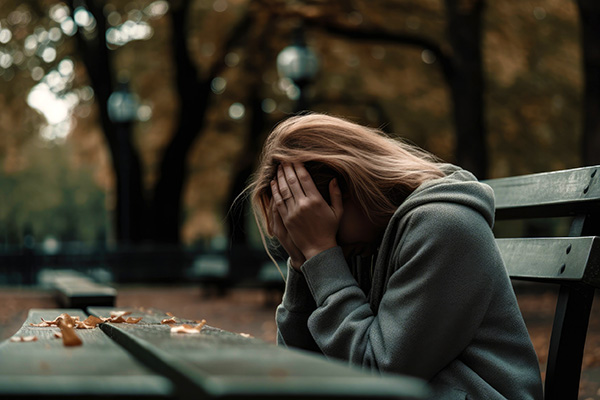denial
Always Remember That You Are Enough
 You are enough. If only, as we grew up, we had heard more such words, even if there was an additional “… and yet strive for more”.
You are enough. If only, as we grew up, we had heard more such words, even if there was an additional “… and yet strive for more”.
The fact is we were raised in a world where competition is prevalent; where our insecurities are often emphasized to us, or used as leverage (intentionally or otherwise); where our personal beliefs about ourselves potentially delays our soul evolution.
As partners in the Universe we say to ourselves, “Everything has a reason, we each have a soul purpose, all is in Divine Order.”
Yet, when a tragedy or life shattering moment hits, we are so intimately impacted that we have to dig deep to console ourselves and try to reframe that that tragedy has a Divine purpose, and that you have enough and are enough in that moment.
Perhaps such a life event is the loss of a family member, a loving relationship, job, pet, or a financial crisis, or any other life-changing event. Our faith in Divinity may keep us going, but it does not change the fact that we are deeply grieved by this loss.
Our ego will bring up all sorts of emotions, including anger, grief, betrayal, denial, hatred and many other emotions. You may espouse such things as, “Why them why not me” or “I feel cheated” and “How could this happen”.
In our Divine space, devoid of analytical ego, we know in our heart this experience is for our soul growth path and those closely connected with us, but that is still hard to face.
How Will Saturn Return Impact Your Life?
 Saturn return is typically a momentous, but intense time in everyone’s life. This significant astrological event occurs when the planet Saturn returns to the same position it occupied at the time of your birth, typically around the ages of 29, 58, and for some, 88.
Saturn return is typically a momentous, but intense time in everyone’s life. This significant astrological event occurs when the planet Saturn returns to the same position it occupied at the time of your birth, typically around the ages of 29, 58, and for some, 88.
It is the completion of a planetary cycle that marks a time of profound personal and spiritual growth, reinvention, and transformation. It’s a time when we may face challenges that force us to confront our deepest fears, limitations, and long-term plans, often pushing us toward greater self-awareness, personal growth, and spiritual maturity.
Known as the “taskmaster” of the zodiac, Saturn represents structure, discipline, responsibility, and life lessons. During a Saturn return, we are faced with the need to take stock of our lives, reevaluate our goals, and solidify our sense of purpose and direction.
Vettius Valens, a renowned astrologer of the ancient Greco-Roman era (c. 120 – c. 175 AD) whose work has greatly influenced modern interpretations of Saturn’s cycles, wrote in his Anthologies, “Saturn delays and restricts, but through patience and perseverance the soul achieves its growth and understanding.”
Any karmic lesson that you have not yet learned, any necessary life challenge that you have not faced, anything that you have avoided, denied or neglected is likely to surface at this time, demanding reconciliation, reevaluation or reckoning, whether you like it or not.
That is why I often tell my clients during a reading, “Learn this lesson and learn it now, while there is still time.” Avoidance, denial, procrastination, and self-deception will not save you from Saturn’s return bringing it right back to your door. In fact, it will only make it much worse and more difficult to resolve.
Our Saturn returns typically occur in three distinct phases during our lifetime, with approximate age ranges based on Saturn’s orbital cycle of about 29.5 years. Each Saturn return serves as a powerful milestone, helping you to develop a more authentic, grounded, and resilient sense of self as you move through the various phases of life.
Why You Need To Be Honest With Yourself
 As a professional psychic, I frequently see clients stuck in unfulfilling relationships or careers, yearning for a deeper sense of happiness and purpose. Many of these individuals are forced to navigate a societal norm that encourages them to settle for less than what they deserve.
As a professional psychic, I frequently see clients stuck in unfulfilling relationships or careers, yearning for a deeper sense of happiness and purpose. Many of these individuals are forced to navigate a societal norm that encourages them to settle for less than what they deserve.
Furthermore, many of us were taught to avoid confronting our problems. This is wrong. We must face the root causes head-on, choosing temporary distractions over them.
This approach may provide a brief sense of comfort, but it is ultimately a futile attempt to perpetuate cycles of dissatisfaction. If you find yourself at a crossroads—questioning a toxic relationship, a stagnant career, or an unfulfilling life path—it is time for a transformative shift. The journey begins with radical honesty.
We must be brutally honest with ourselves. This is not self-criticism. It is self-love. Spiritually empowered people take responsibility for what they can change and refuse to make excuses. When we do this, we empower ourselves to move toward a more authentic, fulfilling life.
Denial and a lack of self-love are holding you back. The truth is our liberator. It shows us the way to greener pastures and a higher vibrational frequency.
Facing your inner truth is uncomfortable. Get over it. Embrace the temporary disruptions of change. It often demands that you release relationships, habits, or patterns that no longer serve your highest good. These shifts might initially feel like losses, but they are blessings in disguise. Each adjustment creates space for new, more aligned opportunities to manifest in your life.
Not Everyone Chooses The Path Of Healing
 You’ve probably heard the phrase “what they don’t know can’t hurt them.” Sometimes this is true, but there are also times when what people choose to ignore or disregard can cause real harm – not only to themselves, but also to those around them.
You’ve probably heard the phrase “what they don’t know can’t hurt them.” Sometimes this is true, but there are also times when what people choose to ignore or disregard can cause real harm – not only to themselves, but also to those around them.
For those of us with psychic or spiritual gifts, there’s an added complexity: the ability to sense the struggles of others, which leads to the question of when and how to help.
Intuitives, channelers and healers are very aware of the energy of others, even when we’re just going about our daily routines. Whether it’s a stranger in the grocery store or a friend across the room, we tend to sense when someone is struggling with grief, trauma or stress.
We may choose to quietly send them comforting or healing energy, hoping it will ease their pain, even if only for a moment, yet the urge to help can be very strong in these situations. And while reaching out and offering help can be very uplifting or rewarding for everyone involved, there are times when our attempts to help are met with resistance, or worse, denial.
It’s especially challenging to see someone we care about turn a blind eye to their own needs or pain, and even more so when our support is disregarded or unappreciated.
One of the hardest lessons I have had to learn in both my personal and professional life is that I can only help those who are willing to help themselves. The sad truth is that sometimes people choose not to act on information that could improve their lives or change their destiny. Instead, their negativity, anger, or fear allows the problem to fester or the behavior to grow, affecting not only themselves but also their loved ones. Over time, this denial creates a cycle of suffering that affects physical, mental and karmic health and well-being, sometimes for generations.


